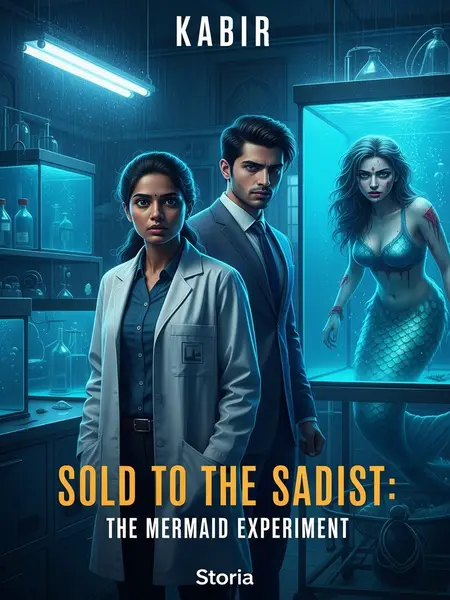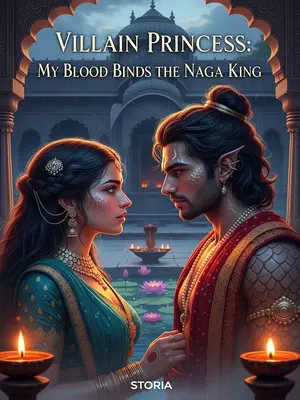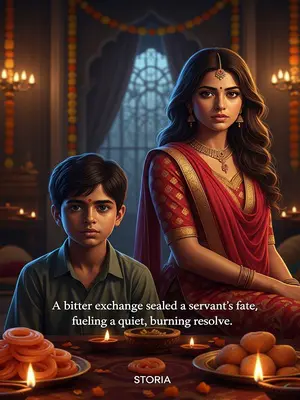Chapter 4: The Rivalry
Even I can’t say exactly when my relationship with Tejas began to change. Maybe it happened slowly, like the way the city changes after every monsoon—imperceptible, but undeniable.
Perhaps because of imprinting, Tejas was attached to me from the start. He followed me with his eyes, always alert, always waiting. Sometimes, I wondered if he was reading my mind.
The lab had captured mermaids before. Everyone knew how fierce and terrifying they could be. There had even been a tragic escape that left more than a dozen staff dead or injured. The memorial plaque in the canteen still bore their names.
But Tejas never showed a hint of aggression. Not once. Not even when I pricked him for blood samples, or when the machines beeped and blared in the dark.
He was one of the largest mermaids, but seemed innately gentle—especially with me. There was a patience in him that felt almost supernatural.
Even during experiments, he never resisted, just gazed at me with those brown eyes, never blinking. Sometimes, I felt guilty, wondering if he understood more than I realised.
Once, while collecting a water sample from the tank, I accidentally fell in. There was a safety net, but the mesh was too large, and as I tried to pull myself up, my arm got stuck, the sharp edge scraping me until I bled. My glasses fogged with panic, and my breaths came in short, frantic bursts.
Crimson blood dripped through the grid into the tank, spreading a faint blue-red ripple.
At that moment, I went cold all over, my mind blank. I remembered all too clearly how bloodthirsty and terrifying mermaids could be.
If sharks can smell a drop of blood from four hundred metres away, mermaids can sense it from several kilometres. My heart hammered in my chest—this was it, I thought, this was how it would end.
Then they swarm in, tearing apart any prey in their path.
Even if Tejas was gentle, no one believed he could go against his nature. The old stories my Dadi told—about rakshasas who turned on their friends in a moment—haunted me.
I thought I was finished.
Cold sweat drenched my back. I tried to pull my arm free, but the pain told me it was probably dislocated. My mouth tasted of iron, and I bit back a cry.
Sure enough, Tejas shot toward me like an arrow, sending ripples through the water.
The next second, he reached out.
Those claws—terrifying weapons that could gut a dolphin in an instant—were clear in the water’s light.
Just as I was about to despair, I felt my wrist gently held.
I stared, wide-eyed.
Tejas moved carefully, his face full of worry as he tried to push my hand up. Seeing my pain, he quickly let go, panicked.
Then, to my shock, he stuck out his tongue and gently licked my trapped wrist. The sensation was strange—cool, soothing, and tinged with something I couldn’t name.
His touch was gentle, as if afraid to hurt me.
Mermaid saliva has both hemostatic and aphrodisiac effects. He just looked at me, quietly stopping the bleeding. My mind reeled with a hundred questions, but my body just melted into relief.
I was stunned. I don’t know how long I sat there before the bleeding stopped. The world narrowed to just the two of us, the glass walls, and the slow, even rhythm of his breathing.
Tejas slowly pushed my arm, and with the help of his saliva and my blood, I managed to pull it free. I barely managed to suppress the heat rising in my body as I stumbled out of the lab. My cheeks were flushed, and my legs felt wobbly all the way to the staff quarters.
The next day, after much hesitation, I prepared a gift for Tejas.
Some shiny stones, shells, pearls, coral, and seaweed. I collected them from the market, the aquarium shop, and from my mother’s old jewelry box. A strange offering, but the best I could do.
I’d heard mermaids liked beautiful things, especially when nesting—they’d decorate their nests to attract mates. The stories from Kerala, the old fishermen’s tales, flickered in my memory.
Sure enough, Tejas was delighted.
He swam excitedly in the tank, blew bubbles at me, then hurriedly carried his gifts to the bottom, busy decorating his nest. His hands moved with surprising grace, arranging and rearranging until it was just right.
He used to sleep on bare glass. With the stones I gave him, he wedged deep green seaweed between them, letting it sway with the water. It was like watching a craftsman at work, every detail considered.
Coral and shells dotted the stones. The shells clinked together softly, like bangles on Amma’s wrist during pooja. He especially loved the sparkling gems, rearranging them over and over, never satisfied. In the end, I didn’t see where they went—he must have hidden them in his nest.
He wasn’t fond of pearls and just tossed them aside. It made me laugh—he had his own sense of beauty, his own rules.
That day, I didn’t experiment on Tejas; I just watched him decorate his nest, recording his behaviour. My notebook filled with little sketches, bits of poetry scribbled in the margins.
As I was leaving, Tejas, who’d never spoken before, suddenly made a sound.
I spun around.
He poked his head out of the water, pointing insistently at his carefully decorated nest, as if asking me to look. His eyes sparkled, and for the first time, he looked truly proud.
Seeing I didn’t move, he got anxious, circling behind the thick glass before stopping in front of me, his lips moving.
It was a difficult syllable.
But I heard it clearly.
Because I’d heard this word many times before.
"Meera."
I didn’t know when he’d learned to call my name.
Meanwhile, in Sairaj’s tank, the rivalry began. Out of some inexplicable guilt, I gave Sairaj some big stones too, hoping he’d build a nest. At first, Sairaj seemed a little happy—the hostility in his eyes eased for once. Though he didn’t speak, he earnestly moved the stones, piling them into a nest. His hands were steady, his gaze focused—a craftsman at work.
Tejas watched curiously for a while. When Sairaj finally finished, Tejas suddenly sneered. It was an unmistakable, childish gesture—like my cousins fighting over Diwali sweets, or two boys squabbling over the last ladoo at a wedding.
Then, as if by accident, he showed off his own nest, resplendent with gems, shells, and seaweed streaming like colourful ribbons. The whole tank seemed to sparkle in competition.
As expected, Sairaj flew into a rage.
He swept away his carefully built nest with his tail, scattering stones across the glass. He swam around furiously, then dove to the bottom and sulked. His pride wounded, he glared at the world as if daring it to challenge him.
I knocked on Tejas’s glass, exasperated:
"Are you a child or what? Don’t act smart."
Tejas didn’t get angry, just pressed his face against my palm through the glass, looking smug. I couldn’t help but laugh, even as I shook my head.












